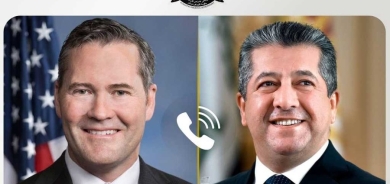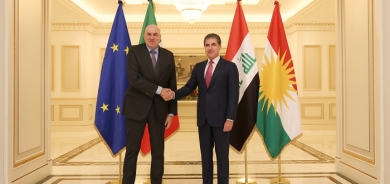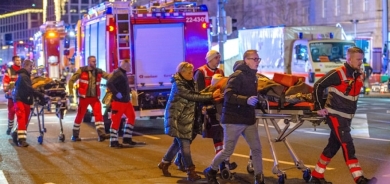THE DANGEROUS NEW SITUATION IN KIRKUK

Although the KRG cannot allow Kurds to be murdered in Kirkuk, it is not wise to send 8500 hundred peshmerga to surround the city now as this is a premature and over-reactive response that will only inflame the situation. Rather a discreet message should be delivered that the peshmerga could be sent if really necessary. However, as for now, calmer heads should prevail so that the situation will not deteriorate. The Iraqi security forces should be given a chance to calm the situation.
This also means that as president of Iraq, Jalal Talabani should use his influence to bring peace. After all he not only represents all of Iraq (Arab, Kurds, Turkomans and Shiites and Sunnis), but is also one of the two main Kurdish leaders. This is where his long and vast experience is most called for! The KRG might want to take the first step in trying to stabilize the volatile situation in Kirkuk by pulling back the 8500 peshmerga who have surrounded the city, while calling for the Arabs and Turkomans to reciprocate by stopping their own actions that might further destabilize things. Where is the prime minister, Nouri al-Maliki in all this? He too should take a strong role in calming the tensions.
The idea that the U.S. troops in the area are destabilizing the situation by favoring the Kurds is ludicrous. If anything, it is the gradual U.S. troop withdrawal that is helping to allow these tensions to boil over. Therefore, the United States should work with all the involved parties to help control the situation without further violence. U.S. troops are needed as neutral honest brokers; they are not the cause of instability.
It is true that the demonstrations that have occurred in Sulaymaniya are a wake up call for the KRG that all is not well with the way politics has been run there. The demonstrations illustrate that corruption and nepotism must end and better government services like jobs and providing electricity 24/7. Two families should not be the only ones eligible for the highest positions in the land.
Finally, the KRG should avoid trying to solve its own domestic problems by seeking to unite all Kurds in an ill-planed adventure in Kirkuk. This might temporarily achieve some Kurdish unity and stop the present demonstrations, but in the long run turn into a disaster that would risk all the Kurdish gains that have been achieved since 1991 and 2003. Astute politics rather than jingoistic reactions to the events in Kirkuk are what are called for.
Professor Michael M. Gunter
Tennessee Technological University/USA

 Michael Gunter
Michael Gunter







